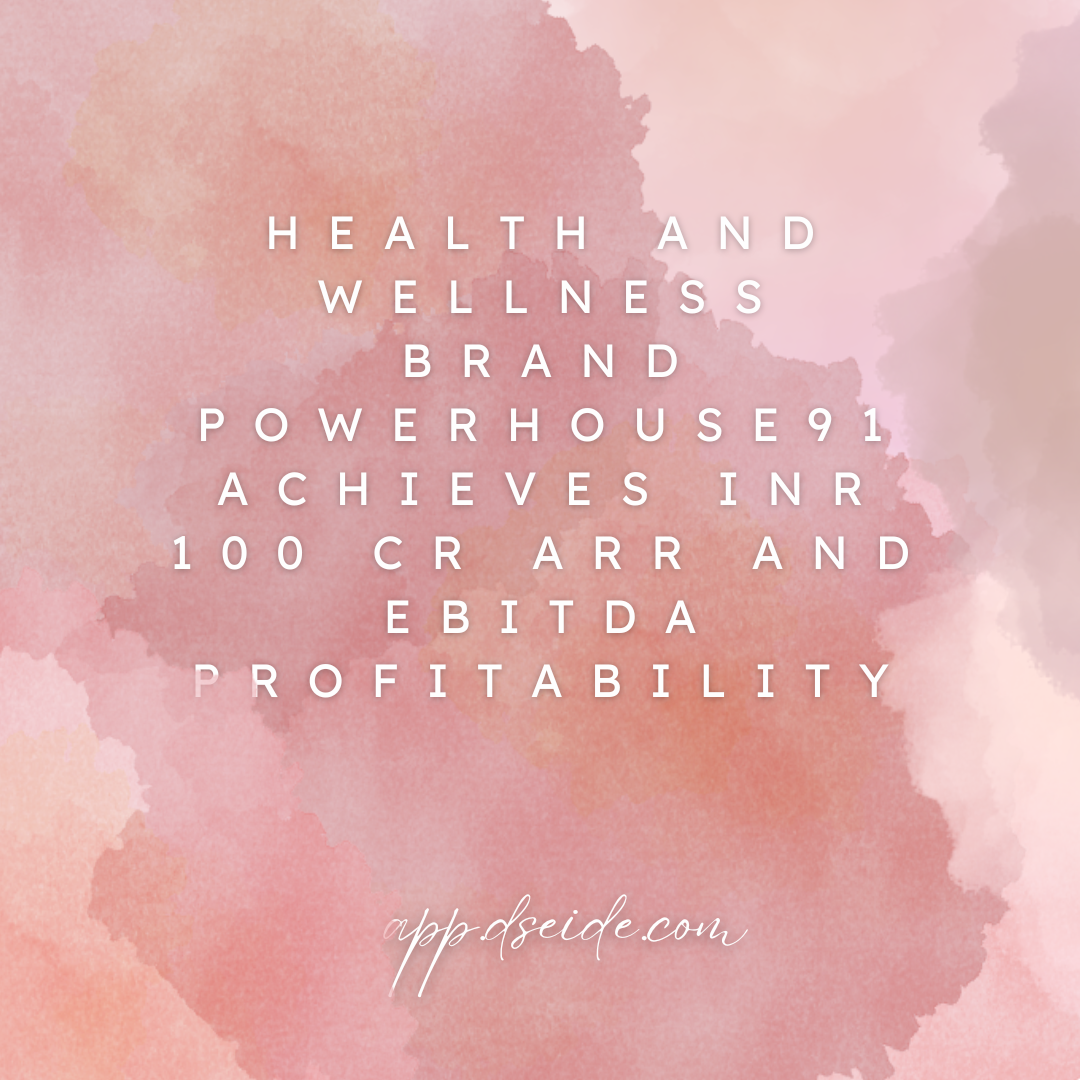In an ecosystem where venture-backed direct-to-consumer (D2C) startups frequently chase scale at the expense of sustainability, Powerhouse91 has quietly emerged as a high-efficiency outlier. The roll-up e-commerce brand aggregator has crossed a major milestone: achieving INR 100 crore in annual recurring revenue (ARR) and turning EBITDA profitable as of April 2025, all with a modest USD 2.5 million (~INR 21.15 crore) in total funding.
Founded in early 2022 by Aqib Mohammed and Shashwat Diesh, Powerhouse91 exemplifies a new wave of digital-first consumer brand builders focused on operational rigor, financial discipline, and category depth rather than blitzscaling. The company runs two core brands:
Azah: A feminine hygiene and wellness brand.
Slovic: Focused on fitness and lifestyle products.
According to some reports, the startup processed approximately 2.4 lakh orders in March 2025 alone, predominantly via online channels including Blinkit, Zepto, and Amazon. Monthly order volumes continue to grow at a healthy double-digit rate, signaling robust consumer traction.
EBITDA Breakthrough with Frugality at Core
Powerhouse91’s path to profitability is particularly noteworthy in a funding environment where burn-heavy D2C models have faced increased investor scrutiny. While many roll-up startups raised large venture rounds in their early stages, Powerhouse91 has managed to scale sustainably with just USD 2.5 million from investors including Titan Capital, FJ Labs, Crossbeam Venture Partners, and Mamaearth’s co-founder Varun Alagh. The company has not raised funds in nearly four years.
The company achieves EBITDA profitability by April 2025, despite posting a INR 4 crore EBITDA-level loss in FY25 and INR 5.97 crore in losses on INR 40 crore revenue in FY24. The turnaround demonstrates the startup’s strong margin improvement and cost-control efforts over the past year.
Source: ipocentral
#healthcarestartupfunding #dseidehealthcarenetwork
Founded in early 2022 by Aqib Mohammed and Shashwat Diesh, Powerhouse91 exemplifies a new wave of digital-first consumer brand builders focused on operational rigor, financial discipline, and category depth rather than blitzscaling. The company runs two core brands:
Azah: A feminine hygiene and wellness brand.
Slovic: Focused on fitness and lifestyle products.
According to some reports, the startup processed approximately 2.4 lakh orders in March 2025 alone, predominantly via online channels including Blinkit, Zepto, and Amazon. Monthly order volumes continue to grow at a healthy double-digit rate, signaling robust consumer traction.
EBITDA Breakthrough with Frugality at Core
Powerhouse91’s path to profitability is particularly noteworthy in a funding environment where burn-heavy D2C models have faced increased investor scrutiny. While many roll-up startups raised large venture rounds in their early stages, Powerhouse91 has managed to scale sustainably with just USD 2.5 million from investors including Titan Capital, FJ Labs, Crossbeam Venture Partners, and Mamaearth’s co-founder Varun Alagh. The company has not raised funds in nearly four years.
The company achieves EBITDA profitability by April 2025, despite posting a INR 4 crore EBITDA-level loss in FY25 and INR 5.97 crore in losses on INR 40 crore revenue in FY24. The turnaround demonstrates the startup’s strong margin improvement and cost-control efforts over the past year.
Source: ipocentral
#healthcarestartupfunding #dseidehealthcarenetwork
In an ecosystem where venture-backed direct-to-consumer (D2C) startups frequently chase scale at the expense of sustainability, Powerhouse91 has quietly emerged as a high-efficiency outlier. The roll-up e-commerce brand aggregator has crossed a major milestone: achieving INR 100 crore in annual recurring revenue (ARR) and turning EBITDA profitable as of April 2025, all with a modest USD 2.5 million (~INR 21.15 crore) in total funding.
Founded in early 2022 by Aqib Mohammed and Shashwat Diesh, Powerhouse91 exemplifies a new wave of digital-first consumer brand builders focused on operational rigor, financial discipline, and category depth rather than blitzscaling. The company runs two core brands:
Azah: A feminine hygiene and wellness brand.
Slovic: Focused on fitness and lifestyle products.
According to some reports, the startup processed approximately 2.4 lakh orders in March 2025 alone, predominantly via online channels including Blinkit, Zepto, and Amazon. Monthly order volumes continue to grow at a healthy double-digit rate, signaling robust consumer traction.
EBITDA Breakthrough with Frugality at Core
Powerhouse91’s path to profitability is particularly noteworthy in a funding environment where burn-heavy D2C models have faced increased investor scrutiny. While many roll-up startups raised large venture rounds in their early stages, Powerhouse91 has managed to scale sustainably with just USD 2.5 million from investors including Titan Capital, FJ Labs, Crossbeam Venture Partners, and Mamaearth’s co-founder Varun Alagh. The company has not raised funds in nearly four years.
The company achieves EBITDA profitability by April 2025, despite posting a INR 4 crore EBITDA-level loss in FY25 and INR 5.97 crore in losses on INR 40 crore revenue in FY24. The turnaround demonstrates the startup’s strong margin improvement and cost-control efforts over the past year.
Source: ipocentral
#healthcarestartupfunding #dseidehealthcarenetwork





